Welcome to our free classical music site

Do you write about classical music? Are you a blogger? Want to team up with Classical Connect? Send us a message, let's talk!

Do you write about classical music? Are you a blogger? Want to team up with Classical Connect? Send us a message, let's talk!
This Week in Classical Music: August 24, 2020. Giovanni Animuccia. Leonard Bernstein was born on August 25th 101 years ago. Otherwise a rare paucity, which we’ll use to go back to the music of the Renaissance. Up till now we have never written about Giovanni Animuccia, a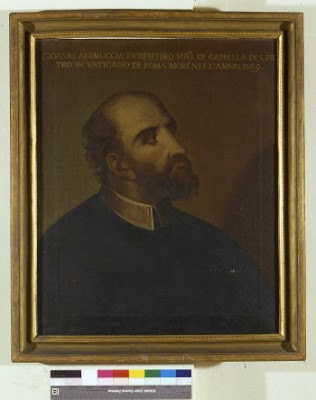 Florentine composer born around 1520. The music of Florence was not as developed as that of Rome; Animucci was one of only two significant composers working around that time, the other one being Francesco Corteccia, maestro di cappella to the Duke of Florence, Cosimo I de' Medici. While in Florence, Animucci composed a book of madrigals, which was published in Venice in 1548. He was associated with major literary and religious figures of Florence, such as the famous priest Philip Neri, who would later, after moving to Rome, be known as the Second Apostle of Rome and for whose religious community, the Oratory, Animuccia would write a set of Laude for early morning services. In 1550 Animuccia left Florence for Rome and entered the service of Cardinal Guido Ascanio Sforza. He met many former Florentines (the Florentines even had their own church, the San Giovanni dei Fiorentini) and enter the circle of Antonio Altoviti, whom Pope Paul III made the Archbishop of Florence. Duke Cosimo didn’t like Altoviti and banned him from entering the city, thus the archbishop spent the following 20 years in Rome. We mention this because Altovivi’s circle included the young Orlando di Lasso, so the two composers knew each other. Animuccia’s musical life was also tied to another great composer, Giovanni Pierluigi da Palestrina. In 1551 Pole Julius III appointed Palestrina the music director of the Cappella Giulia, the second most important choir in the St. Peter’s, after the Capella Sistine In January of 1555 Palestrina moved to San Giovanni di Laterano, the seat of the pope as the Bishop of Rome, and Animuccia took his place. He remained themagister cantorum at the Cappella Giulia until his death in 1571, at which time Palestrina returned to the post.
Florentine composer born around 1520. The music of Florence was not as developed as that of Rome; Animucci was one of only two significant composers working around that time, the other one being Francesco Corteccia, maestro di cappella to the Duke of Florence, Cosimo I de' Medici. While in Florence, Animucci composed a book of madrigals, which was published in Venice in 1548. He was associated with major literary and religious figures of Florence, such as the famous priest Philip Neri, who would later, after moving to Rome, be known as the Second Apostle of Rome and for whose religious community, the Oratory, Animuccia would write a set of Laude for early morning services. In 1550 Animuccia left Florence for Rome and entered the service of Cardinal Guido Ascanio Sforza. He met many former Florentines (the Florentines even had their own church, the San Giovanni dei Fiorentini) and enter the circle of Antonio Altoviti, whom Pope Paul III made the Archbishop of Florence. Duke Cosimo didn’t like Altoviti and banned him from entering the city, thus the archbishop spent the following 20 years in Rome. We mention this because Altovivi’s circle included the young Orlando di Lasso, so the two composers knew each other. Animuccia’s musical life was also tied to another great composer, Giovanni Pierluigi da Palestrina. In 1551 Pole Julius III appointed Palestrina the music director of the Cappella Giulia, the second most important choir in the St. Peter’s, after the Capella Sistine In January of 1555 Palestrina moved to San Giovanni di Laterano, the seat of the pope as the Bishop of Rome, and Animuccia took his place. He remained themagister cantorum at the Cappella Giulia until his death in 1571, at which time Palestrina returned to the post.
Here’s the Sequence (a hymn) from Animuccia’s Mass Victimae Paschali (Praises to the Passover victim), performed by Wellington, New Zealand- based The Tudor Consort.
Three conductors were also born this week: Wolfgang Sawallisch, a German conductor who for ten years led the Philadelphia Orchestra, on August 26th of 1923; the great German conductor Karl Böhm, on August 28th of 1894 (here’s our recent entry about him); and István Kertész, a Jewish-Hungarian conductor who led many of the best orchestras but died (by drowing) young, at 43 (Kertész was born on August 28th of 1929).Permalink
This Week in Classical Music: August 17, 2020. Porpora and Salieri. Nicola Porpora, a composer famous of his time for his operas and as a music teacher (Farinelli was one, as was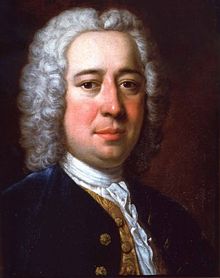 Haydn) was born on this day in 1686. Here is an entry we wrote about him two years ago. Another composer mentioned in this entry is Antonio Salieri. His birthday is also this week: Salieri was born on the 18th of August 1750. We left off our story about Salieri in 1784, when he returned from Vienna after a two-year stay in Paris. Two things had changed during this time: the Emperor Joseph II became more interested in Italian opera buffa, and new competition arrived from the likes of Giovanni Paisiello and the 28-year-old Mozart. Salieri’s first Viennese opera after his return from Paris was La grotta di Trofonio (1785). Here’s the overture to it, performed by the Mannheimer Mozartorchester, Thomas Fey conducting. Next, following the new tastes, he reworked his French opera Tartare in Italian (and gave it a new title, Axur re d'Ormus). Axur became very popular and between 1788 and 1805, when Vienna was captured by Napoleon, was staged more than 100 times. In 1788 Joseph appointed Salieri the Hofkapellmeister, the highest musical position at the court. Salieri held it till 1824, the longest tenure ever.
Haydn) was born on this day in 1686. Here is an entry we wrote about him two years ago. Another composer mentioned in this entry is Antonio Salieri. His birthday is also this week: Salieri was born on the 18th of August 1750. We left off our story about Salieri in 1784, when he returned from Vienna after a two-year stay in Paris. Two things had changed during this time: the Emperor Joseph II became more interested in Italian opera buffa, and new competition arrived from the likes of Giovanni Paisiello and the 28-year-old Mozart. Salieri’s first Viennese opera after his return from Paris was La grotta di Trofonio (1785). Here’s the overture to it, performed by the Mannheimer Mozartorchester, Thomas Fey conducting. Next, following the new tastes, he reworked his French opera Tartare in Italian (and gave it a new title, Axur re d'Ormus). Axur became very popular and between 1788 and 1805, when Vienna was captured by Napoleon, was staged more than 100 times. In 1788 Joseph appointed Salieri the Hofkapellmeister, the highest musical position at the court. Salieri held it till 1824, the longest tenure ever. 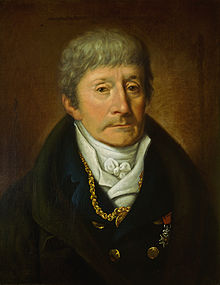 (It’s interesting that the highest position Mozart was ever to attain was Kammermusicus or Chamber Musician, lower than that of Hofkapellmeister, person in charge of music-making at the Court). Joseph II died in 1790 but Salieri continued working under the patronage of Joseph’s successor, Emperor Leopold II. Life was not quite the same for him: Leopold wasn’t as interested in music as his predecessor, Salieri couldn’t travel to Paris because of the Revolution, he stopped working with Da Ponte, the great librettist, and his genius competitor, Mozart, was dead. Still, Salieri continued to write, and one of the operas of the period, Palmira, composed in 1795, is now considered his best. And, like Porpora, Salieri taught: Beethoven and Schubert were among his students. Salieri retired in 1824 and died in Vienna a year later, on May 7th of 1825.
(It’s interesting that the highest position Mozart was ever to attain was Kammermusicus or Chamber Musician, lower than that of Hofkapellmeister, person in charge of music-making at the Court). Joseph II died in 1790 but Salieri continued working under the patronage of Joseph’s successor, Emperor Leopold II. Life was not quite the same for him: Leopold wasn’t as interested in music as his predecessor, Salieri couldn’t travel to Paris because of the Revolution, he stopped working with Da Ponte, the great librettist, and his genius competitor, Mozart, was dead. Still, Salieri continued to write, and one of the operas of the period, Palmira, composed in 1795, is now considered his best. And, like Porpora, Salieri taught: Beethoven and Schubert were among his students. Salieri retired in 1824 and died in Vienna a year later, on May 7th of 1825.
The great Claude Debussy was also born this week, on August 22nd of 1862. You can read our entries about him here and here. Also, one of the most interesting composers of the second half of the 20th century, Karlheinz Stockhausen was also born on August 22nd, but in 1928.Permalink
This Week in Classical Music: August 10, 2020. Foss and the pianists. The German-American composer Lukas Foss was born in Berlin on August 15th of 1922. Unusually gifted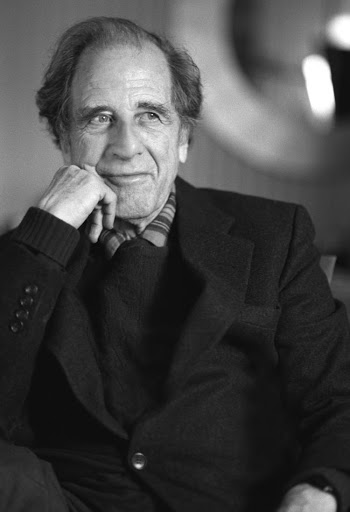 musically, he started composing at the age of seven. The Fosses, who were Jewish, emigrated from Germany in 1933 when the Nazis came to power. They first went to Paris where Lukas studied with several prominent musicians, then in 1937 they moved to the US. Lukas continued his studies at the Curtis Institute where he met Leonard Bernstein; they became lifelong friends. In 1944, Foss gained prominence with his cantata The Prairie on Carl Sandburg’s poem. A year later, when he was 23 years old, Foss became the youngest recipient of the Guggenheim Fellowship. In 1953 Foss was appointed Professor of Music at UCLA, the position previously occupied by Arnold Schoenberg. He created the Improvisation Chamber Ensemble, directed the Ojai Festival, went on to direct the Buffalo Philharmonic and founded the Center for Creative and Performing Arts in that city. He led and guest conducted a number of orchestras in the US and in Europe and incessantly promoted contemporary music.
musically, he started composing at the age of seven. The Fosses, who were Jewish, emigrated from Germany in 1933 when the Nazis came to power. They first went to Paris where Lukas studied with several prominent musicians, then in 1937 they moved to the US. Lukas continued his studies at the Curtis Institute where he met Leonard Bernstein; they became lifelong friends. In 1944, Foss gained prominence with his cantata The Prairie on Carl Sandburg’s poem. A year later, when he was 23 years old, Foss became the youngest recipient of the Guggenheim Fellowship. In 1953 Foss was appointed Professor of Music at UCLA, the position previously occupied by Arnold Schoenberg. He created the Improvisation Chamber Ensemble, directed the Ojai Festival, went on to direct the Buffalo Philharmonic and founded the Center for Creative and Performing Arts in that city. He led and guest conducted a number of orchestras in the US and in Europe and incessantly promoted contemporary music.
Lukas Foss’s early compositions were neo-classical and often populist, as in this Early Song from Three American Pieces, 1944 (the solo violin is by Itzhak Perlman, with Seiji Ozawa conducting the Boston Symphony Orchestra). Later he turned to serialism and improvisation: here is his Elytres for 2 flutes and chamber orchestra from that period, composed in 1964. The New York Philomusica Chamber Ensemble is directed by the composer. Later Foss turned to electronic music. Here is his wonderfully whimsical take on Bach’s Partita in E for solo violin. Leonard Bernstein conducts the New York Philharmonic Orchestra. And here is the interview Lukas Foss gave to Bruce Duffie in 1987.
Two brilliant pianists were also born this week, Aldo Ciccolini on August 15th of 1925 and Julius Katchen, who was born on the same day one year later, in 1926 (Lukas Foss, by the way, was also a brilliant pianist). Ciccolini, an Italian who became a naturalized French citizen, was famous for his interpretation of piano music of his adopted country (his Debussy was exquisite). Katchen, one of the most interesting American pianists of his generation, was a renowned interpreter of the music of Brahms. Katchen died of cancer at the age of 42. We’ll write more about both of these wonderful pianists at a later date.Permalink
This Week in Classical Music: July 27, 2020. Dufay’s peregrinations. Guillaume Dufay, the great composer of the Early Renaissance, is unique on at least two accounts: one is his position as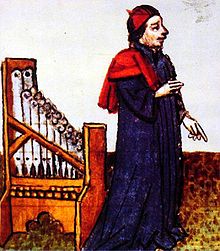 the most influential composer of his generation, who was acknowledged as such during his time and retained that position for the following half-millennium. Another is a curiosity: Dufay is one of the very few musicians born in the 14th century whose birthday was “reconstructed” with some certainty. It was done by the musicologist Alejandro Planchart, the foremost scholar of Dufay and his time, who established the date based on the time of Dufay’s ordination, his years as a chorister at Cambrai Cathedral, and events connected with the funding of his obit service. Planchart had determined that Dufay was born on August 5th of 1397 in Beersel, Brabant, not far from Brussels, and moved with his mother to Cambrai, France, soon after. One thing that doesn’t fail to surprise us is the mobility of musicians of the time. We know that in 1420 Dufay went to Rimini where he entered the service of Carlo Malatesta; Rimini is more than 800 miles away from Cambrai, and you have to travel to Geneva, then Turin, Milan and then Bologna in order to get there. After returning to Cambrai, Dufay went to Laon. He then went to Bologna, where he served at the court of Cardinal Louis Aleman. From Bologna Dufay went to Rome, where he served as the papal chaplain. He may have traveled for a brief stay in the Benedictine monastery of Cossonay, near Lausanne. In 1433, Dufay was hired by Duke Amédée VIII of Savoy, and traveled to Chambéry, then the capital of Duchy of Savoy. While in Savoy, Dufay met the composer Gilles Binchois, and the poet and writer on music Martin le Franc, who were working at the court of the Dukes of Burgundy. In 1435 Dufay returned to the papal chapel, which by then moved from Rome to Florence. Two years later, he left the papal employ and returned to Savoy. We know that he went to Lausanne and Basel and two years later entered the service of the Duke of Burgundy. The dukes didn’t have permanent capital and were moving around most of the time, from Dijon to Brussels to Bruges and other cities of the realm, and even though Dufay stayed mainly in Cambrai, we can assume that he also traveled along with the court, at least on some occasions. In the following years Dufay visited other cities, such as Turin, Padua and Mons. Dufay died inCambrai on November 27th of 1474. What makes his travels even more remarkable is that till 1452 the One Hundred Years War was raging between France and England –– and the fighting affected not only France but also Burgundy, making travels that more treacherous.
the most influential composer of his generation, who was acknowledged as such during his time and retained that position for the following half-millennium. Another is a curiosity: Dufay is one of the very few musicians born in the 14th century whose birthday was “reconstructed” with some certainty. It was done by the musicologist Alejandro Planchart, the foremost scholar of Dufay and his time, who established the date based on the time of Dufay’s ordination, his years as a chorister at Cambrai Cathedral, and events connected with the funding of his obit service. Planchart had determined that Dufay was born on August 5th of 1397 in Beersel, Brabant, not far from Brussels, and moved with his mother to Cambrai, France, soon after. One thing that doesn’t fail to surprise us is the mobility of musicians of the time. We know that in 1420 Dufay went to Rimini where he entered the service of Carlo Malatesta; Rimini is more than 800 miles away from Cambrai, and you have to travel to Geneva, then Turin, Milan and then Bologna in order to get there. After returning to Cambrai, Dufay went to Laon. He then went to Bologna, where he served at the court of Cardinal Louis Aleman. From Bologna Dufay went to Rome, where he served as the papal chaplain. He may have traveled for a brief stay in the Benedictine monastery of Cossonay, near Lausanne. In 1433, Dufay was hired by Duke Amédée VIII of Savoy, and traveled to Chambéry, then the capital of Duchy of Savoy. While in Savoy, Dufay met the composer Gilles Binchois, and the poet and writer on music Martin le Franc, who were working at the court of the Dukes of Burgundy. In 1435 Dufay returned to the papal chapel, which by then moved from Rome to Florence. Two years later, he left the papal employ and returned to Savoy. We know that he went to Lausanne and Basel and two years later entered the service of the Duke of Burgundy. The dukes didn’t have permanent capital and were moving around most of the time, from Dijon to Brussels to Bruges and other cities of the realm, and even though Dufay stayed mainly in Cambrai, we can assume that he also traveled along with the court, at least on some occasions. In the following years Dufay visited other cities, such as Turin, Padua and Mons. Dufay died inCambrai on November 27th of 1474. What makes his travels even more remarkable is that till 1452 the One Hundred Years War was raging between France and England –– and the fighting affected not only France but also Burgundy, making travels that more treacherous.
If you want to read more about Dufay and his time, take a look here and here.Permalink
This Week in Classical Music: July 27, 2020. Three Tenors. Only two of our tenors were born this week, Sergei Lemeshev and Mario del Monaco, but the birthday of the third one, Giuseppe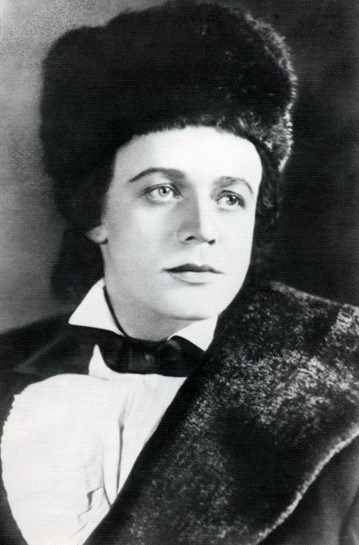 Di Stefano, was three days ago. The Russian tenor Sergei Lemeshev is the oldest of the three: he was born on this day in 1902. One of the greatest tenors of the Soviet Union, (along with Ivan Kozlovsky) Lemeshev was born into a peasant family. He went to St.-Petersburg to be a shoemaker, listened to gramophone recordings in his free time and learned the musical basics at a vocational school. In 1920 he was sent to the Moscow Conservatory, where he studied for four years, 1921 through 1925. In 1924 he performed the role of Lensky in Tchaikovsky’s Eugene Onegin under the direction of the famed Konstantin Stanislavsky. That was to become his most famous (and favorite) role: he performed it more than 500 times. After graduation he performed in provincial theaters; then in 1931 he was invited to the Bolshoi. With Koslovsky, he became one of Bolshoi’s leading singers for more than a quarter century. He sung numerous roles, many in the operas by Tchaikovsky, Rimsky and other Russian composers, but also the roles of Alfred in La Traviata, Gounod’s Faust, the Duke in Rigoletto and Rodolfo in La Boheme. During WWII he contracted pneumonia and then tuberculosis; he was treated but eventually one of his lungs collapsed. He sang with one lung from 1942 to 1948 when the lung was re-inflated. Lemeshev died in Moscow on June 26th of 1977.
Di Stefano, was three days ago. The Russian tenor Sergei Lemeshev is the oldest of the three: he was born on this day in 1902. One of the greatest tenors of the Soviet Union, (along with Ivan Kozlovsky) Lemeshev was born into a peasant family. He went to St.-Petersburg to be a shoemaker, listened to gramophone recordings in his free time and learned the musical basics at a vocational school. In 1920 he was sent to the Moscow Conservatory, where he studied for four years, 1921 through 1925. In 1924 he performed the role of Lensky in Tchaikovsky’s Eugene Onegin under the direction of the famed Konstantin Stanislavsky. That was to become his most famous (and favorite) role: he performed it more than 500 times. After graduation he performed in provincial theaters; then in 1931 he was invited to the Bolshoi. With Koslovsky, he became one of Bolshoi’s leading singers for more than a quarter century. He sung numerous roles, many in the operas by Tchaikovsky, Rimsky and other Russian composers, but also the roles of Alfred in La Traviata, Gounod’s Faust, the Duke in Rigoletto and Rodolfo in La Boheme. During WWII he contracted pneumonia and then tuberculosis; he was treated but eventually one of his lungs collapsed. He sang with one lung from 1942 to 1948 when the lung was re-inflated. Lemeshev died in Moscow on June 26th of 1977.
Mario del Monaco was born on this day in 1915, Giuseppe Di Stefano – on July 24th of 1921. Both were giants of the Italian opera, and the period in the late 1950s-1960 when both were in their prime – and when Franco Corelli was also at the height of his career – is the golden age of opera, probably never to be repeated. The timber of their voices was different: Di Stefano was a lyric tenor who with time moved to more dramatic roles; it was said that he possessed the most beautiful voice since the time of Beniamino Gigli. He was Pavarotti’s favorite singer. Del Monaco, on the other hand, was a dramatic tenor: his voice was slightly lower than Di Stefano’s but his diapason was large, so he could sing lyric dramatic roles as well: he was great as Radames in Aida and Canio in Pagliacci. Del Monaco had a very exciting voice of enormous power; his most famous role was Otello. Del Monaco’s career was long: he first appeared on stage in 1940 and retired in 1975. Di Stefano, on the other hand, was at the top of his form for just several years in 1950 – but what a voice it was! Here’s Di Stefano in the role of Cavaradossi singing the famous aria E lucevan le stelle from Puccini’s Tosca. This is probably the best Tosca ever recorded: in addition to the phenomenal Di Stefano it featured Maria Callas as Tosca and Titto Gobbi as Scarpia, both at the top of their form. And here’s Mario Del Monaco with the incomparable Renata Tebaldi in the 1952 recording of Gia nella notte densa from Verdi’s Otello.Permalink
This Week in Classical Music: July 20, 2020. Stern 100. Tomorrow is the 100th anniversary of Isaac Stern, one of the greatest violinists and cultural figures of the 20th century. Stern was born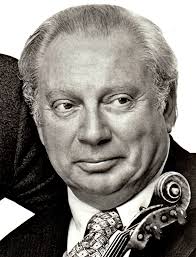 on July 21st of 1920 in the small town of Kremenets which was then in Poland but is now part of the Ukraine. His family was Jewish, many Jews were leaving the pogrom-ridden lands, and so did the Stern family, just one year after Isaac’s birth. They moved to San Francisco; when Isaac was just eight years old, and he was enrolled in the SF Conservatory. He made his recital début in 1935 and a year later he performed Saint-Saëns’s Violin Concerto no. 3 with the San Francisco Symphony under the direction of Pierre Monteux. Stern made his New York debut in 1937, then played there again, to great acclaim, in 1939, establishing himself as one of the top young violinists. He was the first American violinist to tour the Soviet Union in 1956, in the midst of the cold war. In 1961 Stern created a trio with the pianist Eugene Istomin and the cellist Leonard Rose; they stayed together for the next 23 years, performing widely in the US and Europe, and making many highly acclaimed recordings. Stern also organized a piano quartet with the pianist Emmanuel Ax, the violinist Jaime Laredo and the cellist Yo-Yo Ma. Stern had a very broad repertoire, playing all major violin concertos, all trios of Beethoven and Brahms, and major sonatas. A big supporter of contemporary music, Stern gave first performances of concertos by William Schuman, Krzysztof Penderecki, and Henri Dutilleux, among others.
on July 21st of 1920 in the small town of Kremenets which was then in Poland but is now part of the Ukraine. His family was Jewish, many Jews were leaving the pogrom-ridden lands, and so did the Stern family, just one year after Isaac’s birth. They moved to San Francisco; when Isaac was just eight years old, and he was enrolled in the SF Conservatory. He made his recital début in 1935 and a year later he performed Saint-Saëns’s Violin Concerto no. 3 with the San Francisco Symphony under the direction of Pierre Monteux. Stern made his New York debut in 1937, then played there again, to great acclaim, in 1939, establishing himself as one of the top young violinists. He was the first American violinist to tour the Soviet Union in 1956, in the midst of the cold war. In 1961 Stern created a trio with the pianist Eugene Istomin and the cellist Leonard Rose; they stayed together for the next 23 years, performing widely in the US and Europe, and making many highly acclaimed recordings. Stern also organized a piano quartet with the pianist Emmanuel Ax, the violinist Jaime Laredo and the cellist Yo-Yo Ma. Stern had a very broad repertoire, playing all major violin concertos, all trios of Beethoven and Brahms, and major sonatas. A big supporter of contemporary music, Stern gave first performances of concertos by William Schuman, Krzysztof Penderecki, and Henri Dutilleux, among others.
In 1960 the then owner of Carnegie Hall, a developer named Robert Simon, attempted to sell the building to the New York Philharmonic. The orchestra, which was about to move to the Lincoln Center, decline (one of the reasons being the consideration – in retrospect quite absurd – that New York cannot support two major concert halls). Simon then decided to demolish Carnegie Hall and build an office tower in its place. Isaac Stern organized a group to save it. Under pressure from the group, New York City bought the building from Simon. Carnegie Hall Corporation was established to run the hall and Stern became its president; he stayed in that capacity for the rest of his life. It’s hard to imagine today how close Carnegie Hall, one of the greatest halls acoustically and historically, came to being demolished. In 1964 Stern was instrumental in establishing the National Endowment for the Arts.
Here’s Brahms’s Piano Trio no 1, performed by Isaac Stern, Eugene Istomin and Leonard Rose. This recording was made in 1966.Permalink